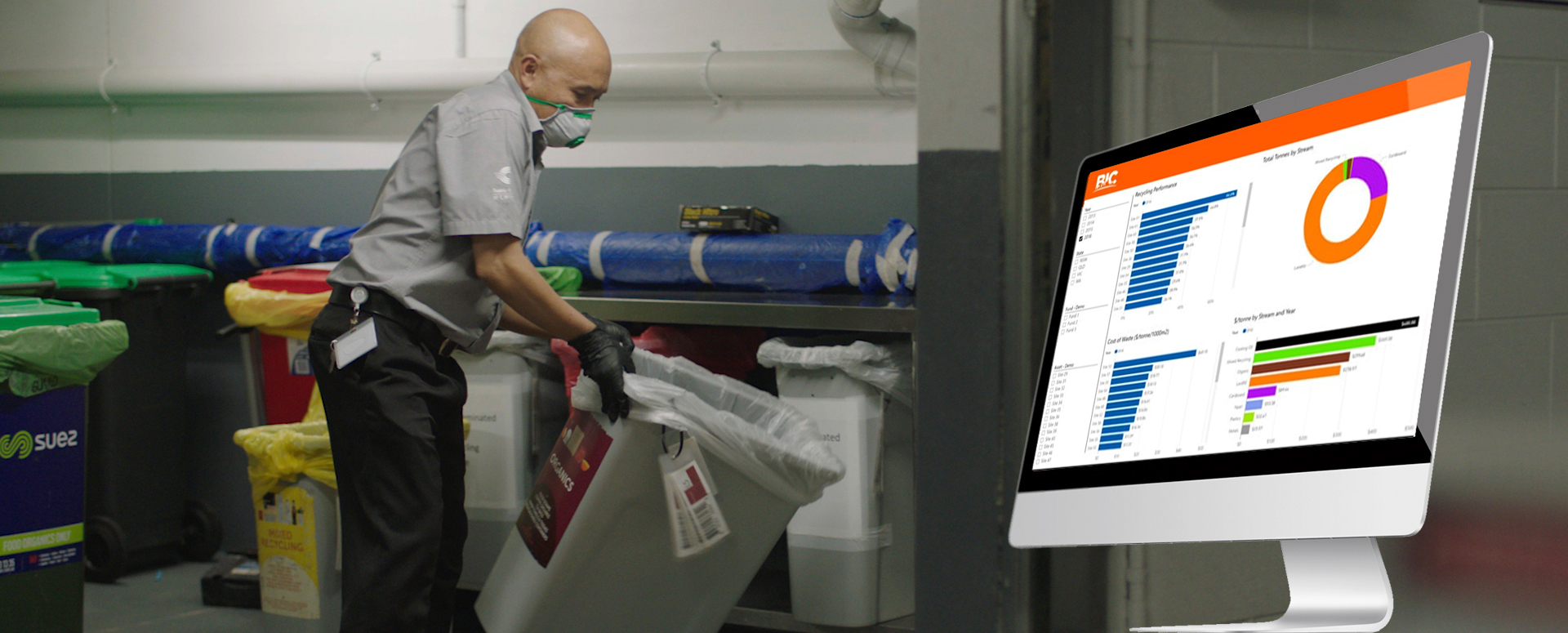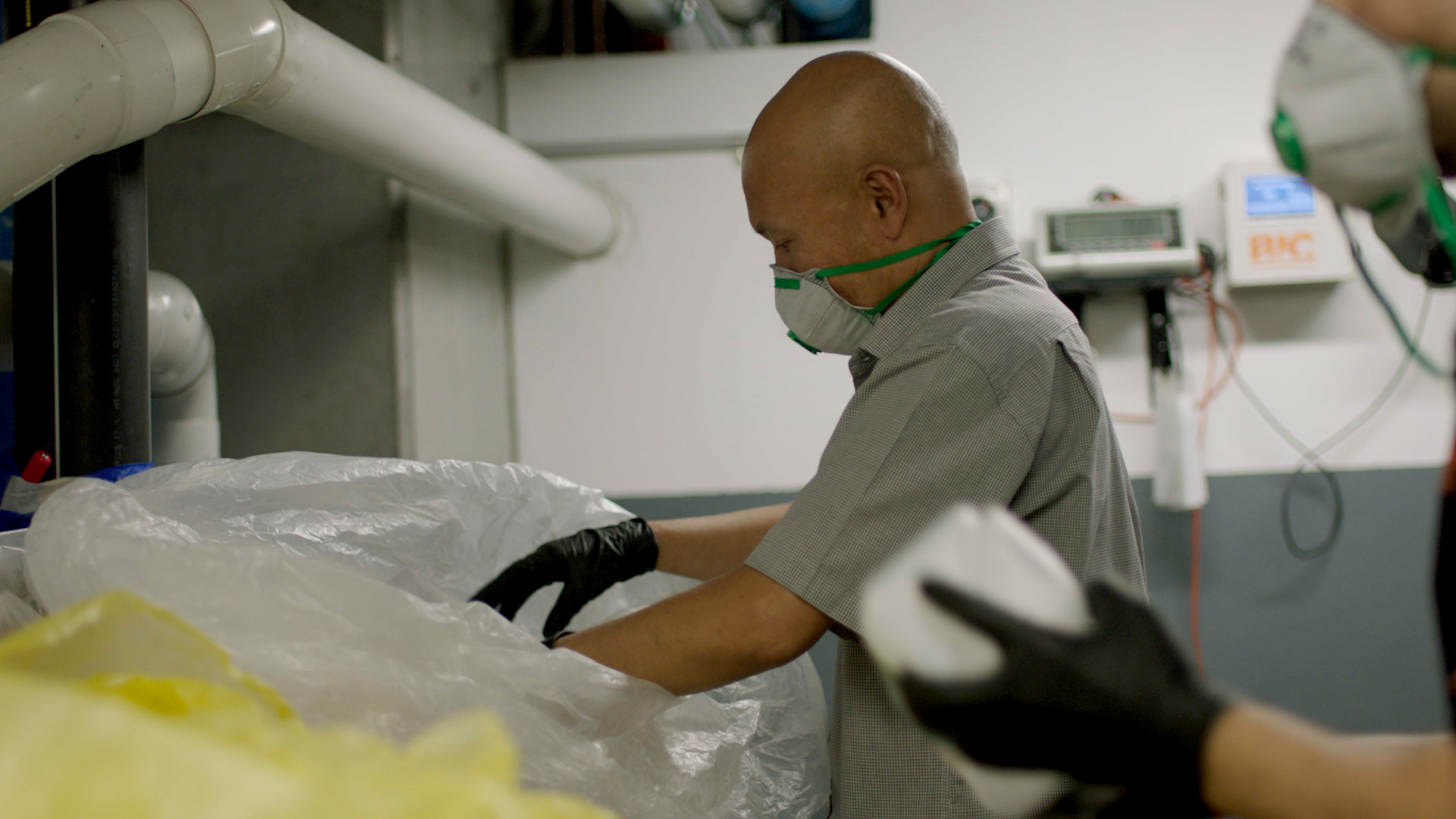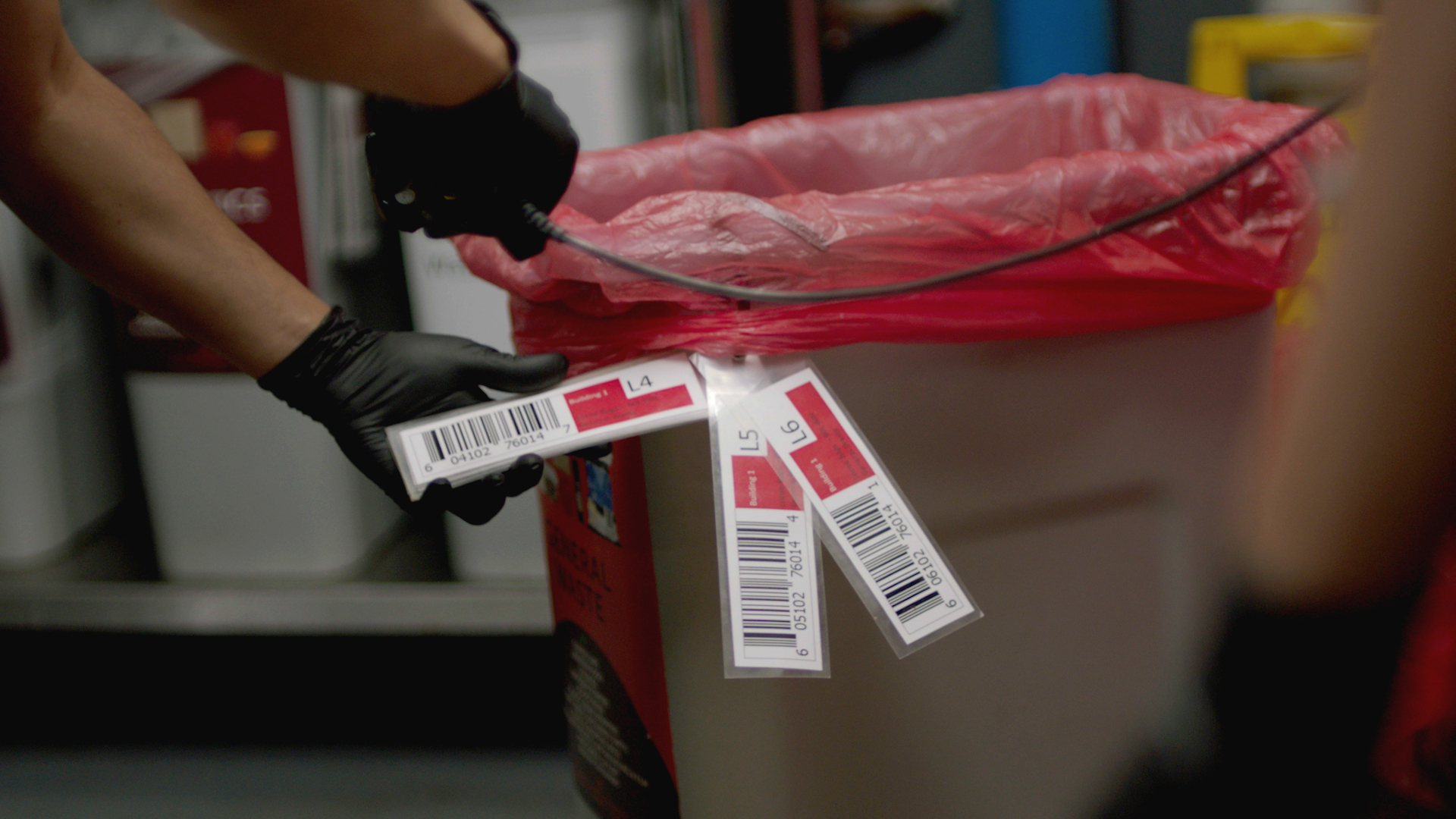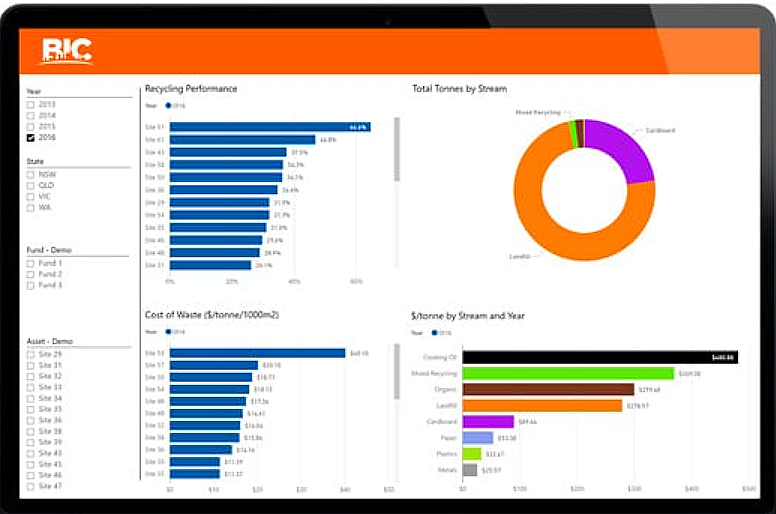
Do you want to make your office building more sustainable? Then look carefully at the way your waste is managed. How much rubbish are you creating? How much of that is going directly to landfill?
According to the ABC’s War on Waste program, Australia is one of the most wasteful countries in the world. Every year, the waste we generate is growing at twice the rate of our population.
Rather than be daunted by these statistics, at BIC they are a source of motivation.
We combine our passion for the environment and the latest technology with a collaborative and educative approach to help organisations reduce their waste in ways that can be measured, benchmarked and improved.
A recent collaboration with two large corporate organisations – the tenant and the asset owner and manager, Mirvac – shows what can be done through a cooperative approach, when mutually shared goals and values are aligned.
For a multi-storey and multi-use complex at South Eveleigh, Sydney, both organisations were keen to set, achieve and transparently demonstrate a high commitment to waste reduction.
Read about how we achieved awesome waste reduction results in just a short period of time.
Establish goals, plan and prepare
When we came on board in 2019, the first thing we did was set an ambitious target, setting out to achieve an 80 per cent recycling rate by 2023.
To meet this goal, we agreed on some key principles:
- Minimise the creation of waste in the first instance
- Where waste was created, reuse as much of it as possible.
- The plan must be efficient and cost-effective.
- Find ways to continually improve waste performance.
We knew that to achieve great results, we needed everyone on board, and to be clear about individual roles and contributions.
We brought together tenant representatives, our team, building managers and waste contractors to discuss shared goals and give everyone a clear role to play.
Educate and promote
A key plank of BIC’s sustainability approach after waste minimisation is to carefully sort waste so that landfill becomes a last resort.
To really underline the importance of why you shouldn’t put your newspaper, left over lunch or can of soft drink all in the same bin, it proved helpful to see waste management in action.

We took the team to one of the big recycling plants to show how waste is divided up and put back into the circular economy by creating reusable materials.
Education and promotion are key to keeping people interested and providing a shared sense of ownership.
We have a dedicated Training Academy to educate frontline staff, cleaners, senior management and other stakeholders about our waste management program.
We also mix up our awareness raising with things like Lunch and Learns, office signage, interactive screens and mini campaigns to encourage sustainability action and highlight accountability.
Activate
At BIC, we target waste at the source by streamlining the collection process.
We recommend removing bins from under individual desks and introducing Centralised Station Bins at key points within each office level. Alongside seeing an increase in recycling of about 30%, the elimination of under desk bins removes the use of a significant volume of bin liners, which are not readily reusable or easy to recycle once contaminated with waste. The centralised system encourages staff to consciously consider which bin an item goes into and helps to stimulate awareness of environmental issues in the workplace and at home. Ensuring the change is communicated in advance, with a call out to help achieve company targets and explaining the multiple benefits from embracing the change, is vital to gaining their buy-in.
When cleaners empty the bins, the separated waste is taken to a sorting area, usually somewhere in the building. Our BIC team sorts the waste, removing any contamination from the recycling. Then it is all weighed before being removed.
 Report
Report
Our BIC Electronic Waste Weighing System records individual waste stream data using barcode readers. We can weigh by whole building, tenant or level – providing critical information about where waste management practices are working, and where they are not.
We compile reports of each bin and send this to our clients, attaching photos as proof and for auditing purposes.
An audit provides back up evidence that our data is accurate and enables companies to confidently report on their sustainability efforts, knowing the data can be assured by a third party.
Reinforce
BIC attends monthly meetings at South Eveleigh, providing feedback on each building and reporting on any areas that can be improved.
Our team meet with the tenant and Mirvac Sustainability teams to discuss results and ensure we are on track to achieve goals. We regularly mix up our promotion and education activities to keep sustainability and waste management top of mind.
All reporting and analytics are also tabled at our monthly internal BIC meetings to discuss any key learnings and improvements.
Real results
 The South Eveleigh commercial towers were a challenging environment to deliver increases in landfill diversion because of the sheer number of stakeholders involved.
The South Eveleigh commercial towers were a challenging environment to deliver increases in landfill diversion because of the sheer number of stakeholders involved.
Creating waste champions who could help drive the initiative, along with ambitious goal setting, careful planning, education, and clear and transparent reporting, meant we were able to create processes that both reduced waste creation and waste stream contamination, leading to a consistent improvement in recycling rates.
In 2019, achieving an 80% recycling rate by 2023 seemed impossible. However, by mid-2021 the team were halfway towards reaching that goal and is on track to achieve the target ahead of schedule.
If you want to find out more about how BIC can help you with your organisation’s sustainability goals, please get in touch https://bic-services.com.au/contact



